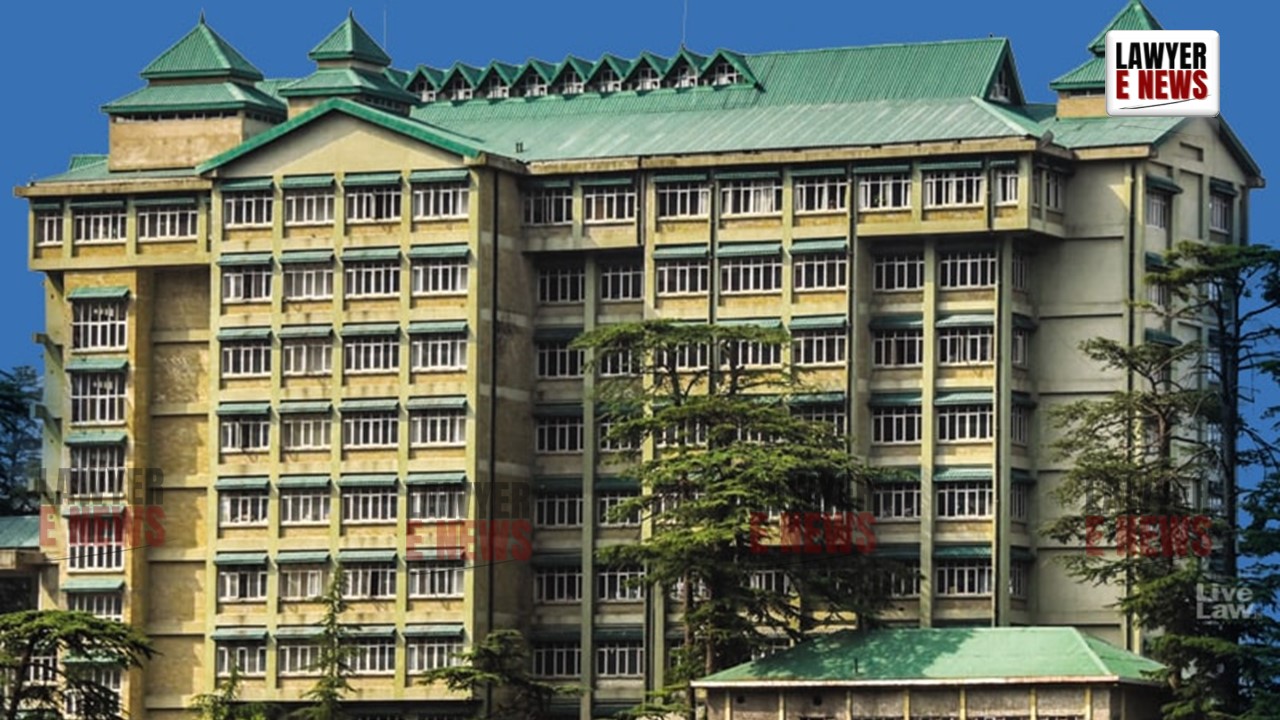-
by Admin
18 February 2026 2:53 AM



Even in absence of direct dowry demand, sustained abusive behaviour and physical assault can attract Section 498-A IPC - In a detailed and significant ruling refused to quash a criminal prosecution under Section 498A IPC and a separate proceeding under the Domestic Violence Act against an Indian Army officer and his family. Justice Satyen Vaidya emphasized that “mere taunts or emotional abuse, if persistent and hurtful, can amount to cruelty under the law even if dowry demands are not explicitly stated”.
The Court firmly held: “It cannot be said that no case under Section 498-A of IPC or a case of wrong under the DV Act is made out even if the allegations in the complaint are presumed to be correct. The mischief of Section 498-A IPC can be attracted under Explanation (a).”
“Power to Quash Criminal Proceedings Must Be Exercised Sparingly—Not a Substitute for Trial”
The petitioner, Major Ajeet Yadav, a serving officer in the Indian Army, sought quashing of two proceedings initiated by his estranged wife Dr. Himakshi Sharma—a criminal case under Section 498-A IPC and a domestic violence case pending before different magistrate courts in Una, Himachal Pradesh.
The couple had married on 20th January 2020, and soon thereafter, the wife alleged that the petitioner and his family began harassing her for dowry in the form of a car and a plot. In her detailed complaint, she narrated several incidents of verbal abuse, physical assaults, emotional humiliation, and even instances of sexual violence within the marriage.
She stated: “He was in the habit of indulging in forcible intercourse and would beat me for resisting. Once, forgetting to wear the Mangalsutra led to public abuse and slapping.”
Ajeet Yadav argued that: “These complaints are a result of vengeance and malice. I am a decorated officer, and the proceedings are an abuse of process. There was never any demand for dowry, and the allegations are general and unsupported by evidence.”
He further emphasized that: “I have already been exonerated by the Army after a thorough internal inquiry. Once cleared, I cannot be tried again on the same allegations.”
“Exoneration in Departmental Inquiry Is No Bar to Criminal Prosecution”
Court’s Reasoning and Findings: Rejecting the petitioner’s claims, the Court found that the wife had narrated a series of events indicating sustained physical and mental abuse.
Justice Vaidya wrote: “From the wife’s complaints and the record, it is clear that the relationship had turned toxic and abusive. The repeated taunts and instances of physical assault, as alleged, cannot be dismissed at this stage as vague or imaginary.”
Responding to the argument that taunting is not equivalent to a dowry demand, the Court cited AIR 1996 SC 67 and held: “Cruelty under Section 498-A IPC does not require actual dowry demands. Clause (a) of the explanation deals with conduct likely to cause danger to a woman’s mental or physical health. Taunts can form part of such cruelty if sustained and abusive.”
On the petitioner’s exoneration by the Army authorities, the Court was clear: “The report by the Colonel appears to be an internal administrative step, not a judicial inquiry. It lacks evidentiary procedures, cross-examination, or legal standards. Hence, it cannot bar a criminal trial.”
The Court invoked the precedent laid down in Ajay Kumar Tyagi (2012) and Radheyshyam Kejriwal (2011), and observed: “A departmental inquiry may not adopt the legal standards of proof and cannot be equated to findings of a criminal court. Therefore, exoneration therein cannot nullify judicial proceedings based on the same facts.”
“Allegations of Emotional, Physical and Sexual Abuse Deserve to Be Tried on Merits”
Justice Vaidya underscored the observations from Samar Ghosh v. Jaya Ghosh (2007) regarding mental cruelty, quoting: “Mental cruelty is a state of mind... A sustained course of abusive and humiliating treatment calculated to render life miserable can qualify as mental cruelty.”
In addition to quoting precedent, the Court highlighted: “The wife’s repeated complaints, including to Army Wives Welfare Association, indicate the extent of emotional and psychological distress. These cannot be ignored without due trial.”
It was also noted that: “The petitioner’s own admission that a reconciliation was attempted in July 2022, shows that the marriage was under significant strain even before the criminal complaints. This contradicts his claim that allegations are post-separation vendetta.”
The High Court categorically dismissed both petitions to quash the criminal and DV Act proceedings. Justice Vaidya concluded: “The wife’s allegations are specific, repeated, and emotionally intense. Whether or not they are ultimately proved is for trial. At this stage, this Court cannot step into the shoes of a trial court and assess the truth or falsity of the claims.”
He reiterated the well-settled law: “Quashing power under Section 482 CrPC or Article 227 of the Constitution is an extraordinary jurisdiction. It must be used sparingly and only in rarest of rare cases—not to pre-judge complaints that prima facie disclose a case.”
Date of Decision: 10 April 2025
